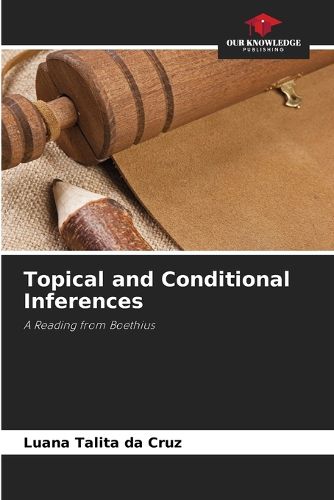Readings Newsletter
Become a Readings Member to make your shopping experience even easier.
Sign in or sign up for free!
You’re not far away from qualifying for FREE standard shipping within Australia
You’ve qualified for FREE standard shipping within Australia
The cart is loading…






The art of finding arguments was a fundamental part of medieval logic, so it would be difficult for a medieval philosopher to be completely unaware of topical inferences. In general, given Boethius' authority from the Logica Vetus until Aristotle's entry into the West through the Arabic translations, the way the Topics were popularised was mainly through the Boethian side. In this paper, we intend to address Boethius' interpretation, its compatibility with Aristotle and Cicero's interpretation and their divergences, focusing on Boethius' original proposal of what should be understood as differentia and maximal proposition. We also intend to discuss certain considerations about the medieval theory of conditionals as well as Abelard's position on the Topics, given his divergence from Boethius' interpretation and his intention to study it in order to deepen his studies on conditionals.
$9.00 standard shipping within Australia
FREE standard shipping within Australia for orders over $100.00
Express & International shipping calculated at checkout
The art of finding arguments was a fundamental part of medieval logic, so it would be difficult for a medieval philosopher to be completely unaware of topical inferences. In general, given Boethius' authority from the Logica Vetus until Aristotle's entry into the West through the Arabic translations, the way the Topics were popularised was mainly through the Boethian side. In this paper, we intend to address Boethius' interpretation, its compatibility with Aristotle and Cicero's interpretation and their divergences, focusing on Boethius' original proposal of what should be understood as differentia and maximal proposition. We also intend to discuss certain considerations about the medieval theory of conditionals as well as Abelard's position on the Topics, given his divergence from Boethius' interpretation and his intention to study it in order to deepen his studies on conditionals.